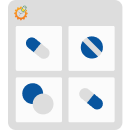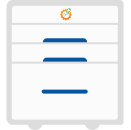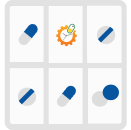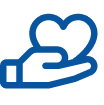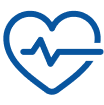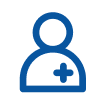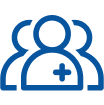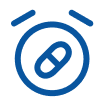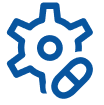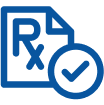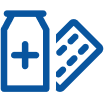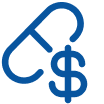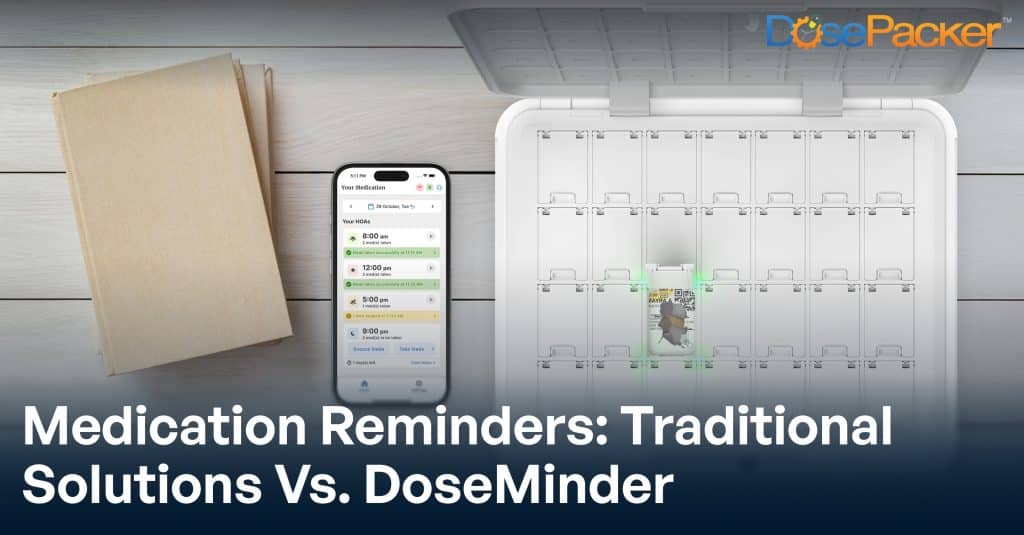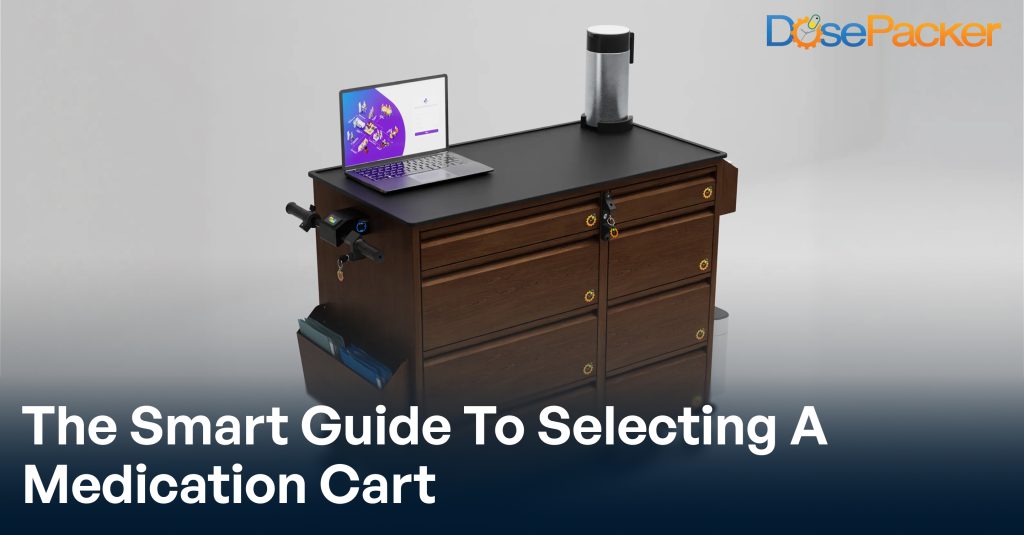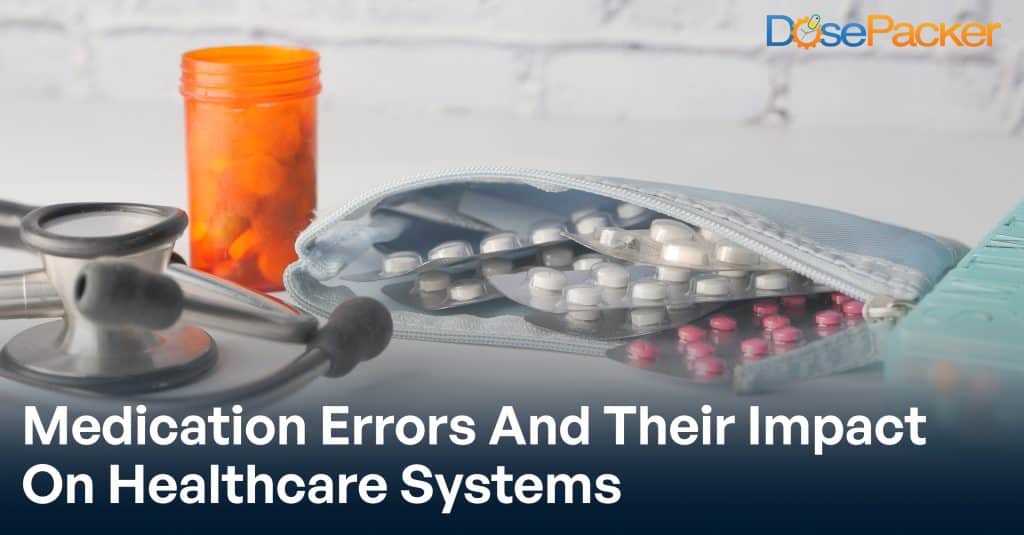Unlock the latest in medication management technology and grow your care community with us.
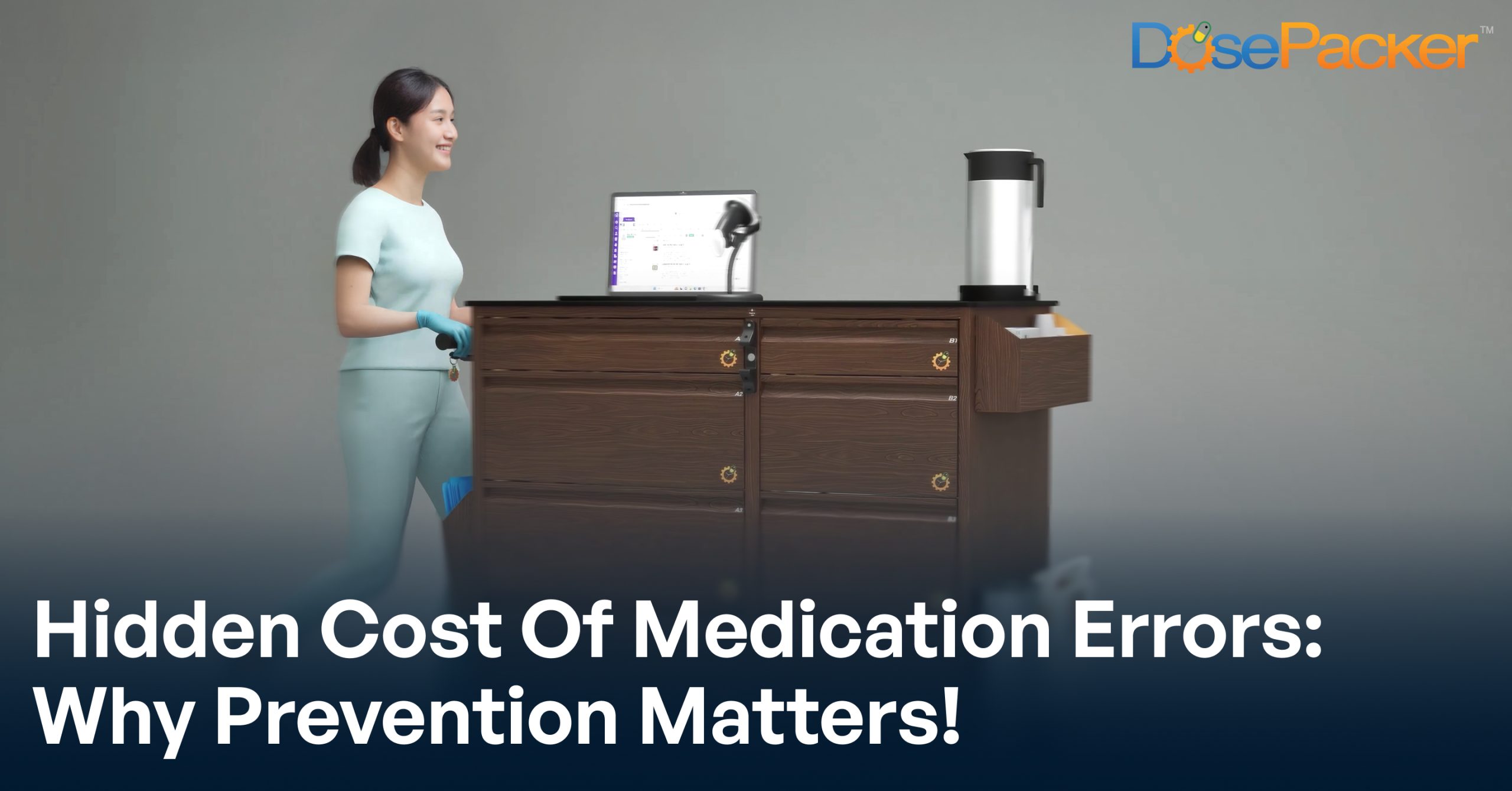
Medication error morbidity and mortality costs are estimated to run $77 billion per year. Therefore, patient safety is a major public health concern.
In fact, each year in the U.S., over 1.5 million medication errors occur in long-term care settings, most during med-passes, leading to adverse events, hospitalizations, and soaring costs for both residents and facilities. In addition to the physical harm, these mistakes carry a silent and often overlooked price tag. Discover more about medication errors in skilled nursing and assisted living by accessing deeper data.
Why Medication Errors Are So Costly
Medication errors don’t just impact resident health; they drive up costs, strain staff, and damage a facility’s reputation. From emergency care to regulatory consequences, even a single mistake can have wide-reaching effects. Understanding these hidden costs is key to preventing them.
1. Financial Burden on Facilities
A single adverse medication event can result in emergency room visits, hospital stays, and even lawsuits costing thousands per incident. Administrative time spent on investigations, documentation, and re-training further strains budgets.
2. Caregiver Burnout and Turnover
When staff are constantly scrambling to document errors or copy paperwork, burnout follows. Turnover rates rise, resulting in increased recruitment and onboarding costs, as well as declines in care consistency.
3. Eroded Facility Reputation
Word spreads fast; one high-profile medication error can damage public trust. A poor rating or negative review can deter potential new admissions, negatively impacting revenue and long-term viability.
4. Resident Health and Quality of Life
Mistakes can cause severe harm, falls, allergic reactions, and hospital readmissions, leading to avoidable suffering. The emotional toll on residents and families is immeasurable.
5. Compliance Risks
Missing documentation or mismanaged controlled substances can invite inspections, fines, or accreditation loss, making compliance far more than just paperwork.
Breaking Down the Root Causes of Medication Errors
Complex workflows, paper-based MARs, and staff shortages combine to create an environment where even small oversights can become dangerous. Many facilities still rely on manual processes, leaving room for skipped double-checks, documentation delays, or illegible notes. In high-pressure moments, this increases the risk that errors become routine rather than rare.
Moreover, without system-level improvements, frontline staff are left to shoulder the burden. When tools don’t support safe practices, even well-trained teams can slip. Over time, this normalizes unsafe shortcuts, leading to preventable harm.
Medication error statistics show that without intervention, errors become inevitable.
Preventing Medication Errors in Care Facilities: Best Practices
While medication errors can carry serious consequences, the good news is they’re largely preventable. By adopting consistent procedures and leveraging smart technology, care facilities can significantly reduce risks. The following best practices provide practical, proven methods to enhance medication safety and safeguard both residents and staff.
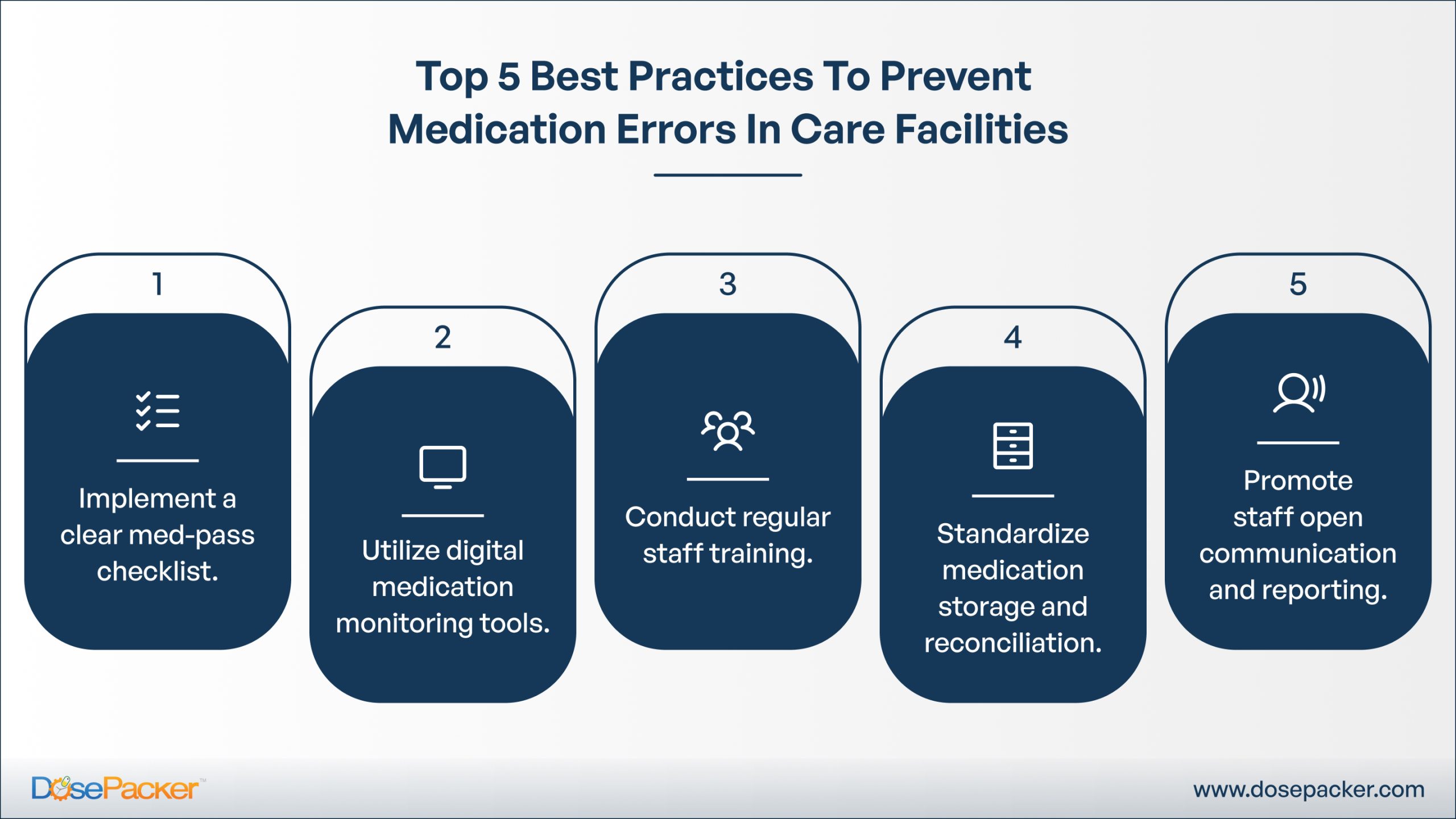
1. Use a Clearly Defined Med-Pass Checklist
A reliable med-pass checklist ensures consistency and prevents steps from being skipped. Critical tasks include:
- Confirming the 5 Rights of Medication Administration: The right resident, medication, dose, time, and route
- Matching medications with two resident IDs
- Documenting exactly when medications are given
Fewer medication administration steps skipped lead to reduced chances of medication errors.
2. Embrace Digital Medication Monitoring
Manual documentation is slow and error-prone. Digital tools, like those featured in this blog, for medication monitoring help automate logging, capturing timestamps, and flagging missed or late doses, dramatically improving accuracy.
3. Provide Regular Staff Training
Keep caregivers updated with ongoing education on medication protocols, safety best practices, and new technology tools. Regular training refreshes critical skills and boosts confidence, helping staff avoid errors and respond quickly to challenges during med-passes.
4. Standardize Medication Storage and Conduct Routine Reconciliation
Consistently organize and label medications to minimize confusion and expedite administration. Regularly review resident medication lists, especially after care transitions, to catch discrepancies early and ensure accurate treatment.
5. Foster a Culture of Open Communication and Reporting
Encourage staff to report errors or near misses without fear of retribution. Open dialogue helps identify problem areas, supports continuous learning, and enhances safety protocols, resulting in fewer mistakes and improved resident care.
These best practices, combined with DosePacker’s innovative solutions, help care facilities deliver safer and more reliable medication management.
How DosePacker Helps Reduce Medication Errors
Preventing medication errors isn’t just about catching mistakes; it’s about building a system that makes them less likely to happen in the first place. DosePacker offers integrated solutions that address both the administration and adherence sides of medication management. By combining automation, accuracy, and accountability, DosePacker helps care teams reduce risks, lower costs, and deliver safer, more consistent care.
1. Multi-Dose Compliance Packaging
DosePacker delivers pre-sorted, dose- and time-specific medication packaging that is clearly labeled, removing any guesswork during medication passes. Caregivers scan each pack before administration, and the system instantly logs the dose in real time, eliminating manual documentation errors and ensuring full regulatory compliance.
2. CareCommunityOS
It’s a centralized platform connecting every part of the medication workflow. CareCommunityOS consolidates medication data, provides real-time updates, and maintains comprehensive, audit-ready documentation. Staff can track medication administration, monitor adherence, and quickly identify missed or late doses, all from an intuitive dashboard that supports efficient care management.
3. DoseKart
DoseKart is a mobile medication cart designed to support caregivers during med-pass. Fully integrated with CareCommunityOS, it offers instant access to residents’ medications and barcode scanning capabilities. This empowers staff to confidently deliver the right medications at the right time, reducing errors and improving workflow efficiency.
4. DoseMinder
It’s a smart reminder device that encourages resident independence by using visual and audio cues to prompt medication intake. It automatically sends real-time adherence updates back to CareCommunityOS, enabling caregivers to remotely monitor medication use and intervene promptly if doses are missed.
Together, these solutions create a medication management ecosystem that reduces errors, enhances communication, and promotes safer, more efficient care delivery.
Impact That’s Long-Lasting
- Reduced Hospitalizations: Safe medications help ensure fewer visits to the ER.
- Lower Regulatory Costs: Auditable logs protect against fines. Medication errors carry more than just clinical consequences; they have a severe impact on finances.
- Higher Staff Retention: Easier workflows mean happier caregivers.
- Improved Reputation: Strong safety record attracts residents.
Take Action Today
Medication errors carry more than just clinical consequences; they also impact budgets, morale, and trust. However, facilities can turn things around by preventing medication errors in care facilities through the use of structured processes and smart technology.
Start here:
- Adopt a med-pass checklist as standard practice.
- Train staff on its use.
- Implement DosePacker’s Medication Management tools.
Be proactive, not reactive. Every avoided error saves money and dignity.
Ready to uncover and eliminate hidden costs?
